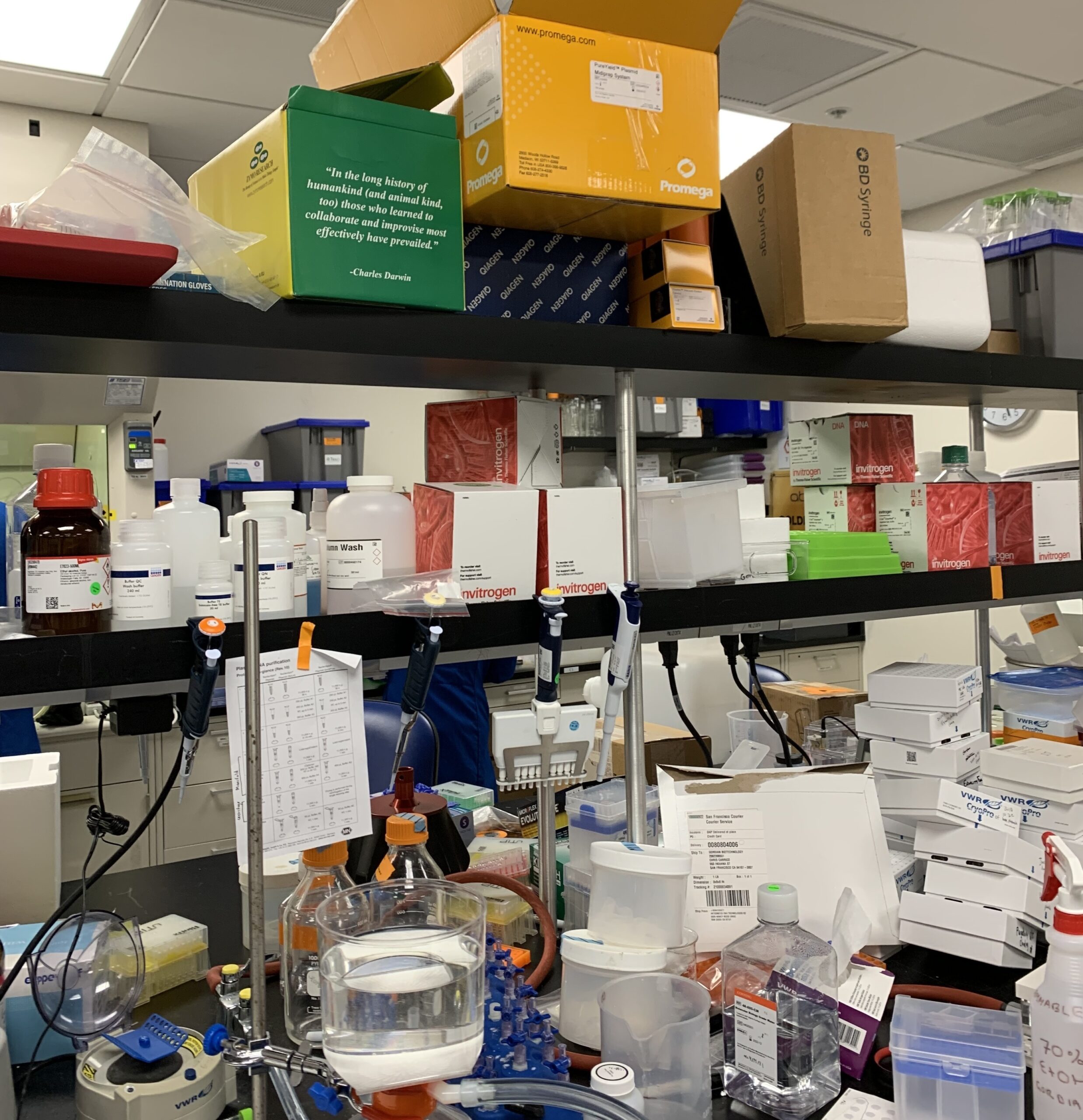In just two years, despite being a non-Founder in Silicon Valley, I’ve been incredibly fortunate to meet well over a hundred founders in many different fields. Deeptech, crypto, longevity, drug discovery, climate tech, women’s health, rockets… Startups come in all shapes and sizes with their own unique challenges.
But for biotechs that are trying to develop a drug, most of the advice out there seems to be about the business, not really the science. That’s a problem because while business advice is important for PhDs who only learned science, there’s many unique challenges to operating science at an industry/startup level that’s more nuanced and technical.
Even with a great business model, a startup will fail with bad science. So instead of another “top 10 startup commandments” on company culture, co-founder fit, fundraising, and legal stuff… I wanted to make a short list addressing highlighting the technical lessons I’ve learned so far.
Today, in a much shorter, Biggie-style list, I wanted to talk about my (current) most practical and undervalued tips for a biotech startup. I’ll call these my commandments, just for fun.
Much of this has been heavily influenced by resources like:
A very practical list of resources about venture
R&R#7: Partners in the Drug Development Landscape
Personal experience
and of course, Founders
1. Believe half of what you see, none of what you heard.
Science is cool, but it’s not always real.
At some point in our scientific education, we learn that good science should be reproducible, meaning, if Dr. Johnny Appleseed in Oxford, Ohio discovers that a new strain of E. coli can absorb CO2 from the air and convert it to gasoline, I should be able to do it too in California. I mean, I saw it in a published paper somewhere! Why wouldn’t it work in my hands?
Well, it’s usually because either:
A. You didn’t do the protocol right, or
B. The publication data wasn’t real
It’s surprisingly common for authors to inflate their numbers for a publication, omit toxicity responses, or their secret sauce to make the experiment work. So if you’re onboarding new protocols from publications or testing out a new assay/antibody you saw work: believe half of what you read, and be skeptical of what’s “happening”, until you see the data yourself.
2. Be careful what you outsource.
The biotech world is now filled with Contract Research Organizations (CROs), and they’ve enabled startups to run experiments completely remotely. These organizations can do almost anything, from histology, in vivo testing, immune panels, cDNA synthesis, plasmid sequencing, and so much more. You can essentially now run all of your company’s experiments without ever renting out lab space and setting foot in the lab.
But with this model of drug development, where you save on technicians and lab rental fees, you end up paying with time, money, and lack of transparency. Lab technicians are expensive (~$80-110k/yr), but they’ll execute a protocol the same day they’re asked. Whereas for a CRO, you may have to sign a few documents, ship reagents there, and wait a week or so until they’re done with another company’s project.
Vivariums for example are expensive to purchase and maintain, but they allow for much higher turnaround time on experiments (<4wks), more quality control (you can walk into the room and see where they’re injecting and how), and minimize lost information.
It’s a careful balance of what you outsource vs execute in-house. Don’t just send it off to a CRO because it’s cheaper or easier – weigh the pros and cons of the quality and faithfulness of the data you’re getting in return.
3. Build now, talk later.
For a drug development company with no product to sell, marketing should be on the bottom of the priority list.
Every company needs a spokesperson for the company whose infectious enthusiasm converts the naysayers into believers. But you don’t need a fancy website or a press conference – just put your head down and build. There’s something to say about companies who have a fancy website and marketing contract that’s deep in R&D trying to push a drug into a clinical trial. Publicity is great and will certainly open doors for you down the line, but you shouldn’t jump the marketing gun too early.
Spend that money on a winter retreat in Tahoe with the team or a feverish night out on the town. Wait until you have results to do a full-on marketing push. If the data is real, the term sheet will write itself.
4. Buy Used or Splurge.
You don’t need a $2,000 Eppendorf® MiniSpin centrifuge, just get this amazon one for $79. I promise it does the same thing, and your PCRs will work just as well. Matter fact, this one’s even better than the Eppendorf one because you can spin down your strip tubes!
In every biotech hub there should be a used lab equipment sales service. In SF, it’s BES. And if not, every machine you want can be found on eBay, Craigslist, or even the Vendor themselves. They usually have a used version of the machine you’re trying to buy at 20-50% the price. Just ask, it never hurt anybody.
But sometimes you want to spend that extra dime. Because for some things that you use every day you want to make sure you buy the best one to get the best results possible. Ultrapure water systems, scissors,
micropipettes, and more. Think carefully, but spend generously on things that are essential for your company’s operations and data output. The minor headaches and time loss adds up after a while.
5. PhDs aren’t Managers, Executives, or Bosses. So learn how to be one, fast.
Many biotech founders are around 30yrs old, mostly because they did a PhD which takes 4-6yrs to complete. They’re often very smart and can be more mature than first-time tech CEOs, owing mostly to age. But just because they’re older and have a PhD, doesn’t guarantee that they’re going to be good CSOs, or even managers for that matter.
A PhD can often be an isolating endeavor, and the collaborative nature of biotech startups may be a culture shock to a PhD who now must lead a small company. Leadership, entrepreneurship, and management are skills that are taught through studying and practice, just like science.
Thankfully, you don’t need to go to business school to learn most of it. Just read books, and learn through intentional trial and error. Start with the books listed above – they’re some of the most canonical books for founders.
6. AI is a tool, not the answer.
This is not the decade of end-to-end in silico drug discovery. Our biological data we have is incredibly flawed, and the “LLM and ML algorithms” shouldn’t be trusted on their own yet. There seems to be several AI/ML-drive drug discovery startups that are getting traction and funding nowadays, but I stay skeptical of their capability to generate translatable therapeutics.
In the world of scRNA-seq data analysis for example, there are many AI-based analysis tools out there like Monocle, CellOT (Optimal Transport), scvi, and many other algorithms that help scientists analyze large, complex transcriptomic data.
While these tools are incredibly useful, as of November 2023, ML-based drug discovery seems to be more hype than reality. Somewhere between a fake trend and real trend, where the early adopters have been using it obsessively, but there are also many people who aren’t doing a whole lot with it.
7. Sleep a lot, workout, get a therapist and/or coach.
“Grind til you die” is overrated. Don’t sleep when you die. There’s always going to be moments of intense 20hrs/day crunch-period at your startup, especially in the early days. Yes, startups often survive on their own momentum, especially in the early days (years). But the reality is, in the long run, you need to take care of yourself probably more than anyone else. Not just physically, but mentally too.
But unlike tech companies, your milestones are centered around scientific de-risking and where your therapeutic places in the clinical development landscape. This isn’t easy, and you’ll need to think through experiments to the last possible failure mode.
Set yourself up to perform at your mental and physical peak. Get a gym membership, blackout curtains, leadership coach, therapist, whatever you need. Your board will probably be happy that you use a few hundred $/month of their money to make you the best CEO possible.
8. You never know where the money’s coming from – Ask about your LPs.
You can usually trace the money trail back up from Startup -> Venture Capital Fund -> Limited Partners (LPs).
LPs can be governments, sovereign wealth funds, pension funds, etc. Basically, super rich people/groups. Every founder and SWE nowadays in the valley knows the definition, but what many founders don’t do is ask who their fund’s LPs are. It’s like asking your friend how much money they make: awkward, a little invasive, and sometimes unimportant.
But I’d argue that it’s very important for a biotech founder, particularly because they’re in it for the long haul. Unlike many tech startups, you’ll put in over 10 years of your blood, sweat and tears; and at the end of it, someone gonna getting paid, a lot, for your hard work. I think the last thing you’d want is to learn that after 15yrs you made a small fortune for a North Korean oil tycoon.
Ask about your LPs especially if you’re just curious – you never know where the money’s coming from.
9. I ran out of things to say and I didn’t want to write filler… so here’s a poem I liked this week:
Put out my eyes, and I can see you still,
Slam my ears to, and I can hear you yet;
And without any feet can go to you;
And tongueless, I can conjure you at will.
Break off my arms, I shall take hold of you
And grasp you with my heart as with a hand;
Arrest my heart, my brain will beat as true;
And if you set this brain of mine afire,
Then on my blood-stream I yet will carry you.
– Rainer Maria Rilke
10. Subscribe to my Substack! It’s free and you’ll get a notification ~1x/week when I post new content 🙂
Hope you enjoyed this week’s post! For my more polished thoughts, go to my Substack & subscribe to get notified when I post new content.


Leave a Reply